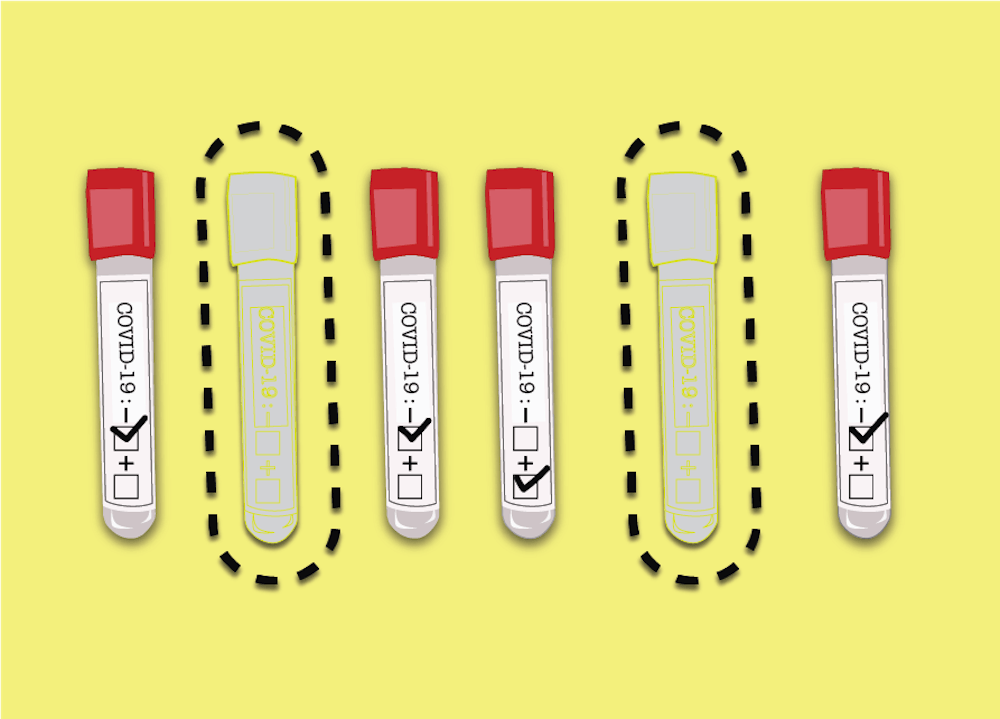More than two weeks after moving onto campus, some Miami University students have yet to receive the result of the first COVID-19 test they took before moving into their dorms.
When students moved into residence halls beginning Sept. 14, they were each tested for COVID-19. According to Miami’s COVID-19 dashboard, 3,601 tests were administered to students moving into dorms.
This fall, Miami welcomed its largest incoming class in recent years, with around 75% of the student population returning to campus, according to communications from President Crawford. Since then, some students have been tested multiple times through either the university’s wide-net or surveillance testing.
Bryce Schreiner, a first-year accounting major, said neither he nor anyone else he has asked has received their test results back from move-in.
"I feel like they definitely should have told us," Schreiner said. "For the first couple days, there might have been people who assume that, since they didn't get a test result back, they tested negative, but who then tested positive later on, so they could've been spreading it."
Interim Director of University News and Communications Carole Johnson said the University is working to contact all students who were tested during move-in, but has faced some difficulty reaching students.
"All 29 students who tested positive from that process were immediately informed and offered guidance," Johnson said. "The remaining students with negative results have also been called, but staff from TriHealth are not able to leave medical information on a student’s voicemail."
Emily Dornsife, a first-year undecided major, got her test results 16 days after being tested. She tested negative but was unsure of her results for more than two weeks. She heard from other students that those who tested positive were being informed before those who tested negative.
"I agree that they should be prioritizing positive cases, but being tested two and a half weeks ago and still not knowing my results is not right,” Dornsife said. “I'd prefer to go off-campus to make sure I've actually tested negative instead of assuming I did and not hearing back."
In regards to the potentially slow turnaround time for testing, Johnson said the University is "sensitive to the uncomfortable or tense feelings that might arise while waiting for a test result," and that they are "actively investigating strategies that might result in faster responses as well, including saliva testing and labs with a faster turnaround."
Less than a week after her first test, Dornsife was selected for a surveillance test but was told she did not need to be tested. Although she had not received the results of her first test at the time, Student Health Services told Dornsife she did not need to be tested again because of it.
Schreiner said one of his roommates was told during a surveillance test that Miami was prioritizing informing students who had tested positive, but neither Dornsife nor Schreiner heard this through any official communications.
Enjoy what you're reading?
Signup for our newsletter
Along with the delay in receiving results, students have begun talking about other potential issues with Miami's COVID tests. While there is no evidence supporting the claim, Dornsife said some students believe the university's tests are less accurate and result in more positive results than others.
"A couple people have made [me] aware that there are more positive cases with the rapid tests from Miami," Dornsife said. "So some students go off campus to have more reliable tests, and so they actually get their test results back."
When asked about this, Johnson said the tests the University uses are the most accurate available.
"The specificity of this test is very high," Johnson said, "resulting in a high positive predictive value, even when the percent of true positives is relatively low."
First-year chemical engineering major Ellie Kornreich didn't receive her move-in test results after 15 days. While she appreciates the approach Miami has taken to informing students, she has concerns about the spread of the virus on campus.
"I think that they've been doing a pretty good job overall, because they've contacted the people who were positive quickly," Kornreich said. "I just don't think they've enforced the rules very well because, at least in my dorm, people tested positive, and I think it was in part due to hanging out with other people in large groups without masks."
While Schreiner agreed that Miami has not been as strict as possible with enforcing guidelines and preventing the spread of the virus, he also felt students were to blame for not following the guidelines that are in place.
"I think it relies more on the students, because the university can only do so much," Schreiner said. "If the students aren't going to care about it, then there's nothing [the university] can do about that."




